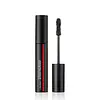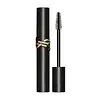What's inside
What's inside
 Key Ingredients
Key Ingredients

No key ingredients
 Benefits
Benefits

 Concerns
Concerns

 Ingredients Side-by-side
Ingredients Side-by-side

Water
Skin ConditioningCI 77499
Cosmetic ColorantSynthetic Beeswax
Emulsion StabilisingParaffin
PerfumingPalmitic Acid
EmollientStearic Acid
CleansingButylene Glycol
HumectantAcacia Senegal Gum
MaskingAminomethyl Propanediol
BufferingGlyceryl Stearate
EmollientCopernicia Cerifera Wax
Vp/Eicosene Copolymer
Phenoxyethanol
PreservativeEthylhexylglycerin
Skin ConditioningPolyglyceryl-2 Isostearate/Dimer Dilinoleate Copolymer
EmollientSimmondsia Chinensis Seed Oil
EmollientHydroxyethylcellulose
Emulsion StabilisingIsopropyl Titanium Triisostearate
EmollientWater, CI 77499, Synthetic Beeswax, Paraffin, Palmitic Acid, Stearic Acid, Butylene Glycol, Acacia Senegal Gum, Aminomethyl Propanediol, Glyceryl Stearate, Copernicia Cerifera Wax, Vp/Eicosene Copolymer, Phenoxyethanol, Ethylhexylglycerin, Polyglyceryl-2 Isostearate/Dimer Dilinoleate Copolymer, Simmondsia Chinensis Seed Oil, Hydroxyethylcellulose, Isopropyl Titanium Triisostearate
Water
Skin ConditioningCI 77499
Cosmetic ColorantBehenyl Behenate
EmollientEthylenediamine/Stearyl Dimer Dilinoleate Copolymer
Skin ConditioningStyrene/Acrylates/Ammonium Methacrylate Copolymer
Cetearyl Alcohol
EmollientStearic Acid
CleansingPalmitic Acid
EmollientPvp
Emulsion StabilisingVp/Eicosene Copolymer
Aminomethyl Propanediol
BufferingPhenoxyethanol
PreservativeCaprylyl Glycol
EmollientButylene Glycol
HumectantMyristic Acid
CleansingSodium Laureth Sulfate
CleansingTetrasodium EDTA
Pentaerythrityl Tetra-Di-T-Butyl Hydroxyhydrocinnamate
AntioxidantPotassium Sorbate
PreservativeIris Florentina Root Extract
MaskingWater, CI 77499, Behenyl Behenate, Ethylenediamine/Stearyl Dimer Dilinoleate Copolymer, Styrene/Acrylates/Ammonium Methacrylate Copolymer, Cetearyl Alcohol, Stearic Acid, Palmitic Acid, Pvp, Vp/Eicosene Copolymer, Aminomethyl Propanediol, Phenoxyethanol, Caprylyl Glycol, Butylene Glycol, Myristic Acid, Sodium Laureth Sulfate, Tetrasodium EDTA, Pentaerythrityl Tetra-Di-T-Butyl Hydroxyhydrocinnamate, Potassium Sorbate, Iris Florentina Root Extract
Ingredients Explained
These ingredients are found in both products.
Ingredients higher up in an ingredient list are typically present in a larger amount.
We don't have a description for Aminomethyl Propanediol yet.
Butylene Glycol (or BG) is used within cosmetic products for a few different reasons:
Overall, Butylene Glycol is a safe and well-rounded ingredient that works well with other ingredients.
Though this ingredient works well with most skin types, some people with sensitive skin may experience a reaction such as allergic rashes, closed comedones, or itchiness.
Learn more about Butylene GlycolCi 77499 is also hydrated iron III oxide. It is created from mixing red and black iron oxides. This helps give shades of darkness to a product.
Iron III oxides are classified as inorganic chemicals for coloring.
Palmitic Acid is a fatty acid naturally found in our skin and in many plant and animal sources. In cosmetics, it is usually derived from palm oil. It serves many purposes in skincare, acting as a cleanser, emollient, and emulsifier.
As an emollient, palmitic acid helps soften and smooth the skin by preventing water loss. In cleansers, it helps remove oil and dirt while creating foam.
Its emulsifying properties help stabilize products by keeping water and oil-based ingredients from separating.
This may not be suitable for fungal acne-prone skin, as fatty acids like this can sometimes trigger breakouts in sensitive individuals.
Learn more about Palmitic AcidPhenoxyethanol is a preservative that has germicide, antimicrobial, and aromatic properties. Studies show that phenoxyethanol can prevent microbial growth. By itself, it has a scent that is similar to that of a rose.
It's often used in formulations along with Caprylyl Glycol to preserve the shelf life of products.
Stearic Acid is a fatty acid. It is an emollient, emulsifier, and texture enhancer.
As an emollient, stearic acid helps soften skin. It aids the skin's protective barrier by preventing water loss. It also provides a gentle cleansing effect without stripping away natural oils.
Stearic acid may also be used to enhance the texture of products. It can add volume and stabilize ingredients such as water and oil. This can help water and oil ingredients from separating.
Sources of stearic acid include animal or vegetable fats/oils such as coconut or shea. It can be naturally found in butter, cocoa butter, shea butter, vegetable fats, and animal tallow.
This ingredient may not be Malassezia folliculitis, or fungal-acne safe.
Learn more about Stearic AcidWe don't have a description for Vp/Eicosene Copolymer yet.
Water. It's the most common cosmetic ingredient of all. You'll usually see it at the top of ingredient lists, meaning that it makes up the largest part of the product.
So why is it so popular? Water most often acts as a solvent - this means that it helps dissolve other ingredients into the formulation.
You'll also recognize water as that liquid we all need to stay alive. If you see this, drink a glass of water. Stay hydrated!
Learn more about Water